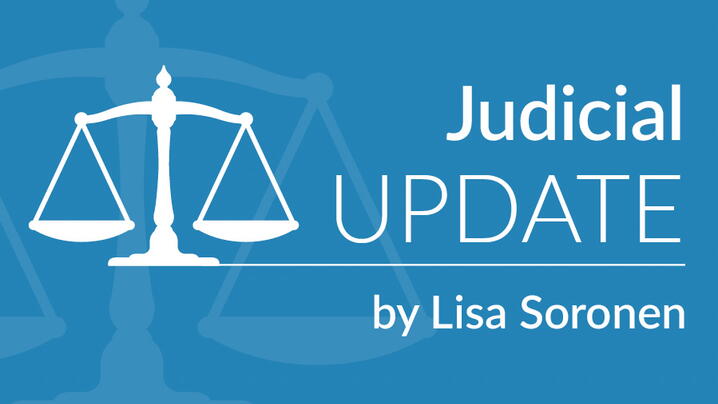
by Lisa Soronen, executive director, State and Local Legal Center
In the State and Local Legal Center's (SLLC) Supreme Court amicus brief in Minnesota Voters Alliance v. Mansky, it argues that states and local governments should be able to ban political apparel at polling places. County election officials and the Minnesota secretary of state were sued for violating the First Amendment in this case and not allowing political apparel to be worn.
At least eight states other than Minnesota (Delaware, Kansas, Montana, New York, South Carolina, Tennessee, Texas, and Vermont) have enacted similar bans.
Andrew Cilek, co-founder of the Minnesota Voters Alliance, was temporarily prevented from voting for wearing two items of political apparel: a t-shirt that stated “Don’t Tread on Me,” which included a picture of the Gadsden Flag and a small Tea Party logo, and an Election Integrity Watch (EIW) button that stated “Please I.D. Me” along with EIW’s website and phone number.
The Eighth Circuit Court held that Minnesota’s law is constitutional, citing Burson v. Freeman (1992). In that case, the Supreme Court upheld a Tennessee statute that banned the solicitation of votes and campaign materials within 100 feet of the polling place.
The Minnesota Voters Alliance argues the statute is unconstitutionally overbroad describing it as having a “breathtaking reach” that criminalizes “all political speech that can be communicated through shirts, hats, buttons, and other apparel,” even though that speech assertedly “imposes no demands or burdens on others.”
SLLC's amicus brief responds to the other side’s arguments head-on. “Far from marking out a ‘breathtaking’ scope, Minnesota’s statute addresses speech in only one very limited and specialized location: the polling place. The law is directed at a type of display that threatens to interfere with the right of voters to cast their ballots freely, without intimidation or disruption. And it states a reasonable rule that has been applied by numerous States—without challenge or, for all that appears, any significant limitation on political debate—for over a century.”
Charles Rothfeld, Andrew Pincus, Michael Kimberly, and Paul Hughes of Mayer Brown and Eugene Fidell, Yale Supreme Court Clinic, wrote the amicus brief, which these organizations joined: National Association of Counties, National League of Cities, United States Conference of Mayors, International City/County Management Association, and International Municipal Lawyers Association.
New, Reduced Membership Dues
A new, reduced dues rate is available for CAOs/ACAOs, along with additional discounts for those in smaller communities, has been implemented. Learn more and be sure to join or renew today!

